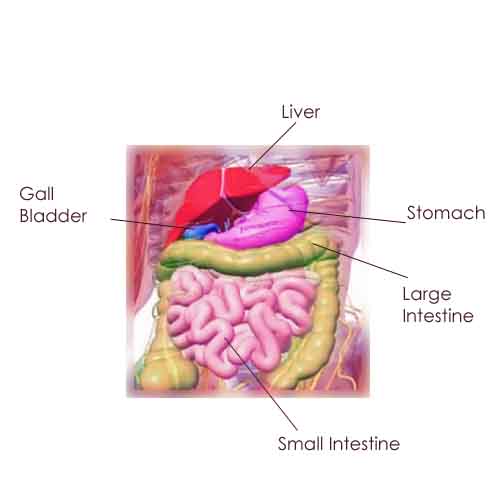Role of Large Intestine in Digestion
After the completion of digestion process in Small Intestine, the remaining food pulp passes-on to The Large Intestine i.e. The Final Stage of Digestion. This Large Intestine is about Five Feet long and from two to three inches in diameter. It is also known as Large Bowel.
The first three-fourth portion of the Large Intestine is called “The Colon”; & the last one fourth of it is called “The Rectum” the discharge-pipe of the food tube.
The primary use of the Colon is to suck out the remaining traces of nourishing matter from the food and water, in which it is dissolved, thus gradually converting the food-pulp into a dry, solid or pasty form. After that it is moved to The Rectum, i.e. the discharge pipe until discharged.
The Waste Materials
By the time that the remains of the food-pulp reach the middle of the Large Intestine, they have lost all their nutritive value and most of their water.
All the way down from the start of the Small Intestine, the glands of the Intestines pour out the waste into the Intestines; indeed, the bulk of the feces are mainly made up of these intestinal secretions, not, as is generally assumed, of the undigested remains of the food. Ninety-five per cent of our food is absorbed as our body burns up the food-fuel very clean. The next largest part of the feces is Bacteria or Germs; and the third and smallest is the indigestible fragments and remainders of food, such as bran, fruit skins, vegetable fibers, pits, seeds, etc.
“Hence the feces are not only worthless from a nutrition point of view, but contain in it all sorts of possibilities for harm; and the prime interest of our body lies in getting rid of them as Promptly And Regularly As is Possible”
It can easily be seen how significant it is that a habit must be developed of promptly and regularly getting rid of these Waste Materials, which nothing should be allowed to break. For most of the people, once in twenty-four hours is normal; but for some, twice or even three times in the day. Whatever interval is natural, it must be attended to, beginning at a fixed hour every morning.




Share the Post